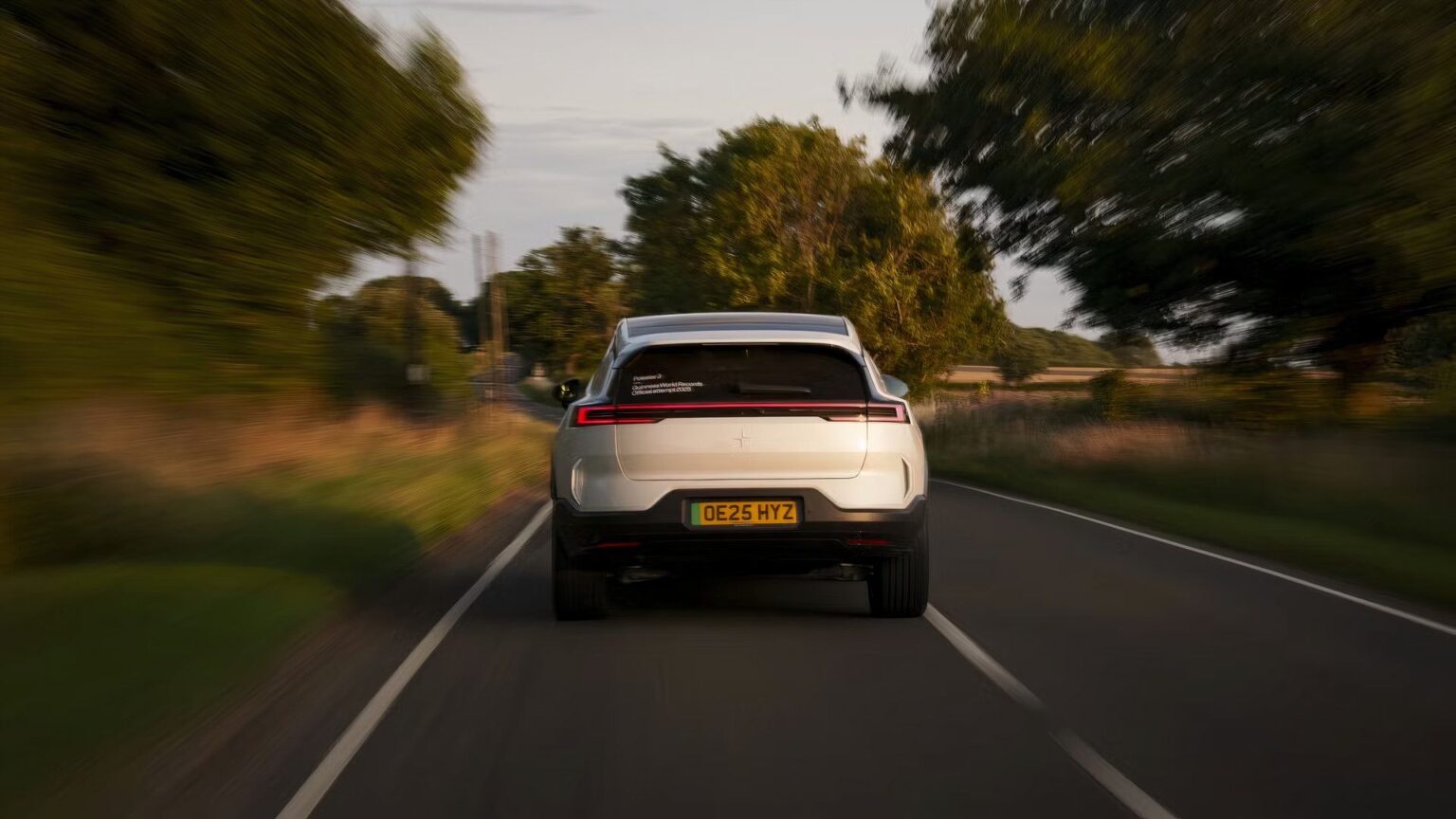For many drivers, range is the number one concern with electric vehicles. How far you can travel on a charge is always important, because unlike conventional, combustion-powered cars and trucks, you can’t just pour a few gallons of electrons into the battery. If you’re not at home where you ostensibly have a Level 2 charger, you have to find a public power dispenser, plug in, and then wait for the pack to replenish itself. Pushing things to the absolute limit – and beyond – there’s a new Guinness World Record for all-electric SUV range.
Going The Distance… And Then Some
Piloted by professional efficiency drivers (yes, apparently that’s a thing), Sam Clarke, Kevin Booker, and Richard Parker, the handsome Polestar 3 just travelled 581.3 miles (935.4 km) on a single charge. This epic journey took nearly all day to complete – specifically 22 hours and 57 minutes – which is why three drivers were used. They rotated out every three hours to “maintain alertness,” a smart safety consideration.
“We are very proud to say we have a world record holder in the Polestar family! This official Guinness World Record for range is another proof point that Polestar 3 is setting new standards,” said the automaker’s CEO, Michael Lohscheller, in a media release. “We will continue to push the boundaries of technology and electric performance,” he added.
Efficiency That Trounces Estimates
This feat was achieved by a Long Range, Single Motor version of the Polestar 3. The vehicle has a WLTP range estimate of 438 miles (706 km), which means these drivers were able to milk another 143 miles out of the vehicle, a staggering difference. In fact, according to the manufacturer, this vehicle hit its WLTP range estimate with 20 percent of the battery capacity still remaining.
Interestingly, this Polestar 3 achieved an efficiency rating of 19.5 kilowatt-hours per 100 miles, a huge score. Also, the drivers were able to travel an additional 8 miles after the battery showed an estimated 0 percent state of charge. They were even able to pull the SUV up to a charger before it completely petered out.
To drive so far on a single charge, and achieve such an incredible efficiency score, the vehicle was likely driven on a test track and at very low speeds, though Polestar does not mention any of this. Wind resistance is a major killer of efficiency, so keeping a light foot on the accelerator pedal is critical. Avoiding stop-and-go traffic is a major help, too.
Ensuring the legitimacy of this range estimate-defying test, Paulina Sapinska, a Guinness World Records judge, adjudicated the feat, while Webfleet provided “meticulously documented and independently verified video footage, odometer readings, GPS readings, and battery level data.” As you might expect, the Polestar 3 used here was 100 percent stock, exactly as it rolled off the assembly line. The car had zero modifications and rolled along on its factory-installed 20-inch wheels fitted with Michelin Sport 4 EV tires.
Not A “Lone” Long-Ranger
Polestar has a lot to be proud of with this news, but the company is not the only one setting range records. The Chevrolet Silverado EV, for instance, just made history as well.
The Max Range Work Truck version of this battery-powered pickup is rated to travel nearly 500 miles (493 miles, to be precise) on a charge, but one of these vehicles managed to go 1,059.2 miles without juicing up. Keeping things interesting, GM did this test on public roads near its proving ground in Milford, Michigan, though the test ended on Belle Isle in Detroit.
To help deliver that massive range, there were no passengers in the pickup for the majority of the test, the tires were inflated to their highest acceptable pressure, the windshield wiper arms were “set to the lowest acceptable position to reduce drag,” and the spare tire was removed. Engineers also optimized the wheel alignment, ensured the climate control system was not used, and this test was conducted in the summer, so low, wintertime temperatures wouldn’t degrade the range.
Drivers piloted the Silverado EV in one-hour shifts, so nobody’s schedule was interrupted too severely. People were encouraged to maintain an average speed of 20 to 25 mph and to minimize hard braking or quick acceleration, likely much to the annoyance of drivers behind them. But hey, that’s the price you pay for setting a new range record.
Read the full article here


